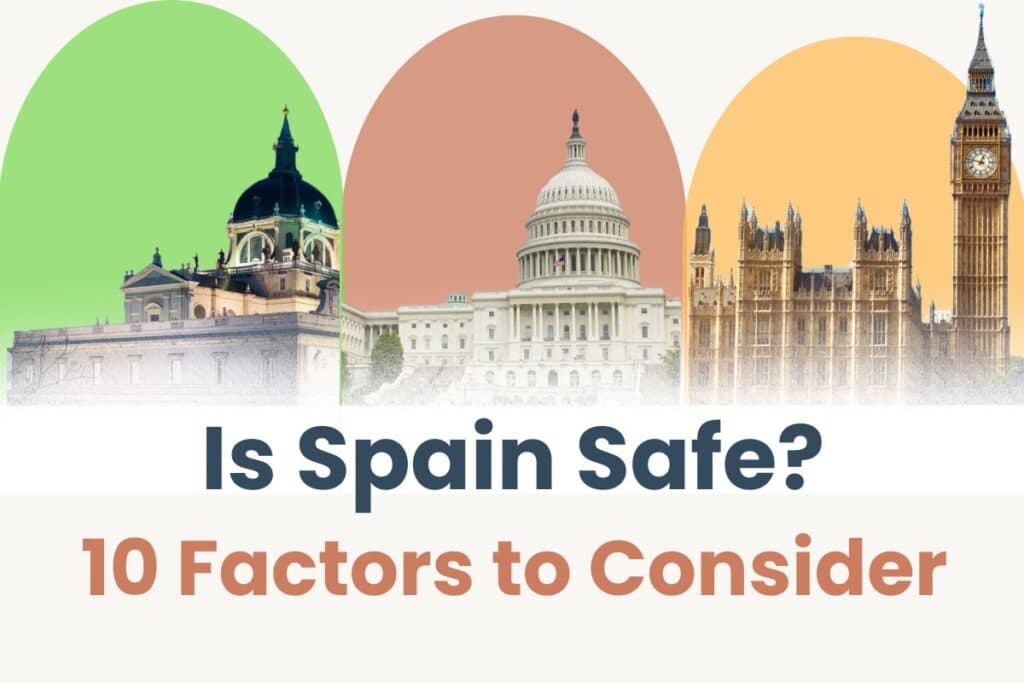What Working Expats Need to Know About the Spain Minimum Wage
Spain’s minimum wage system, known as the Salario Mínimo Interprofesional (SMI), is crucial for anyone considering working or relocating to the country. Established by the Spanish government, the SMI sets the minimum legal salary that an employer must pay, ensuring fair compensation for workers.
In 2025, the Spanish government raised the SMI to €1,184 per month, paid in 14 installments totaling €16,576 annually. This increase reflects Spain’s commitment to reducing wage inequality and improving workers’ living standards.
For Expats working or seeking work in Spain, understanding Spain’s minimum wage is essential when evaluating job opportunities, financial planning, and overall cost of living in Spain. Whether you’re moving for a new career, planning to freelance, or exploring part-time work, knowing the wage standards helps set realistic salary expectations.
This guide provides a detailed breakdown of the Spain minimum wage and its impact on Expats.
Understanding Spain’s Minimum Wage System
The SMI is revised annually, taking into account economic factors like inflation, cost of living, and employment trends.
How the Spain Minimum Wage is Calculated
Unlike some countries that calculate wages on an hourly basis, Spain’s minimum wage is structured on a monthly and annual basis, except for domestic workers.
Salaries in Spain are typically divided into 14 payments per year, consisting of 12 monthly salaries and two additional payments in July and December.
Some employers choose to prorate these extra payments into 12 months, offering a consistent monthly income.
Current Minimum Wage Rates in Spain (2025)
Since 2018, the Spain minimum wage has surged by 61%. This represents a 7% annual increase, marking a significant improvement in worker compensation.
In February 2025, the SMI was increased by 4.4%, resulting in a monthly increase of €50 to €1,184 (14 installments) or €1,381 (12 installments). Both methods total €16,576 annually.
Additionally, the SMI varies by worker category. Daily rates depend on specific labor agreements but often ensure a minimum of €47–€50 per day for full-time workers. Domestic workers are entitled to €9.23 per hour. Contingent and temporary workers whose services don’t exceed 120 days must receive at least €56.08 per day.
The increase in 2025 applies retroactively from January 1, meaning employers must adjust payroll and compensate employees for any underpayments since the start of the year. This affects approximately 2.5 million workers. Women represent 57% of minimum wage earners, making this increase particularly significant for addressing gender pay gaps.
| The Spain Minimum Wage 2025 (€) | ||
|---|---|---|
| Annual | 16,576 | |
| Month | 14 Payments | 1,184 |
| 12 Payments | 1,381 | |
| Hourly Minimum | Domestic Workers | 9.26 |
| <120 Days | 7.01 |
Working week
Spain’s standard work week is capped at 40 hours, with daily working hours not exceeding nine hours on average. Employees must take a 15-minute break after six consecutive hours of work and have at least 12 hours between the end of one workday and the start of the next. In 2025, the government announced plans to reduce the standard workweek to 37.5 hours.
How Spain’s Minimum Wage Compares Internationally
Spain’s minimum wage positions it in the second tier of EU countries, with minimum wages ranging from €1,000 to €1,500 per month. Spain ranks seventh overall among the 22 EU member states that have a national minimum wage.
Comparison with UK and US Minimum Wages
In comparison, the United Kingdom plans to raise its minimum wage by 6.7% to £12.21 per hour (approximately €14.50) in April 2025, positioning it among countries with the highest minimum wages. Meanwhile, the United States maintains a federal minimum wage of $7.25 per hour (approximately €6.70); however, some states and cities have higher local minimums, such as Washington D.C.’s minimum wage of $17.50 per hour (approximately €16.20).
Minimum Wage Comparison Across Major Countries
While Spain’s SMI is substantial within the EU, it remains lower than in countries like Luxembourg, Ireland, and the Netherlands. However, when considering purchasing power and cost of living, the Spain minimum wage provides a competitive standard of living compared to many nations.
| Country | Monthly Minimum Wage (€) | Hourly Minimum Wage (€) |
|---|---|---|
| Luxembourg | 2642 | 15.25 |
| United Kingdom | 2477 | 14.48 |
| Netherlands | 2434 | 14.06 |
| Ireland | 2340 | 13.50 |
| Belgium | 2222 | 12.83 |
| Germany | 2220 | 12.82 |
| France | 1802 | 11.88 |
| Spain | 1184 | 9.23 |
| United States | 1160 | 6.70 |
| Bulgaria | 551 | 3.63 |
READ ALSO >>> Working Remotely in Spain for a US Company: Your Complete Guide 2025
Tax Implications of the Minimum Wage
Historically, minimum wage earners were exempt from income tax (IRPF) due to their low income. However, with the recent increase in the minimum wage for the first time, approximately 500,000 workers (20% of minimum wage earners) are now liable to pay income tax — primarily single individuals without children. This is because the government maintained the tax-exempt threshold at €15,876 rather than raising it to match the new minimum wage. The tax burden varies by personal circumstances — single workers without children will pay about €300 annually, while those with a partner and children over three will pay €99.
This policy change has sparked heated debate between government coalition partners and opposition parties, with critics arguing that it undermines the benefit of the wage increase. However, as of March 2025, no legislative changes have been enacted to address this issue.
Despite this, 80% of minimum wage earners remain exempt due to family deductions.
Need Tax Advice?
Need clarity on your tax obligations and a solid financial strategy ? Schedule a consultation with our recommended tax advisor, Louis, to gain complete clarity and peace of mind.
What Spain’s Minimum Wage Means for Expats
Understanding the SMI and its implications is crucial for setting realistic employment and financial expectations when considering your move to Spain.
While the SMI wage floor provides essential protection for workers, most professional Expats should target significantly higher salaries, as the minimum wage primarily affects sectors such as agriculture, hospitality, and retail.
Crucially, for work permit applicants, the minimum wage serves as a baseline requirement. Most work visas require proof of sufficient income, typically multiples of the threshold, to ensure financial stability. The increased minimum wage has raised these thresholds accordingly.
Digital Nomad Visa (DNV) Applicants
DNV applicants face the most stringent income requirements, now needing to demonstrate monthly earnings of at least €2,762 (200% of the minimum wage) or an annual income of €33,144. For couples, the monthly cost increases to €3,797, with an additional requirement of €346 per month for each dependent child. These thresholds are designed to ensure that digital nomads can support themselves without straining local resources while contributing to Spain’s economy.
READ ALSO >>> The Average Salary in Spain 2025: A Complete Expat Guide
Future Outlook for Spain’s Minimum Wage
Spain’s government is committed to progressively increasing the SMI to align with 60% of the average national wage in accordance with the European Social Charter.
Following the 4.4% increase in 2025, upcoming regulatory changes may include enshrining this 60% threshold in law, as proposed by the CCOO union. Currently, the SMI represents approximately 50% of the average wage.
The government has pledged to consult interested parties regarding the implementation of the EU minimum wage directive and broader reforms into the minimum wage framework. Discussions will focus on implementing automatic adjustments tied to economic indicators, such as inflation and productivity. The twin aim is to ensure that minimum wage earners maintain purchasing power alongside economic growth and improve collective bargaining coverage.

Conclusion: What Expats Should Know About the Spain Minimum Wage
Overall, Spain’s labor market remains attractive for Expats, offering opportunities for career growth and a high quality of life. As Spain continues to align with EU standards, you can expect ongoing improvements in working conditions and wages.
While the Spain minimum wage offers a basic standard of living, it varies significantly from professional salaries. For Expats, the SMI is best viewed as a starting point — not a target —when job hunting or planning finances. You should aim for significantly higher salaries, particularly in sectors like technology, finance, and consulting.
If you have a Spanish work permit, be aware that visa approvals often require proof of income above the SMI, with digital nomads needing at least €2,762 per month.
For entrepreneurs and job seekers, understanding sector-specific wages and the cost of living in different regions is crucial for realistic expectations. Additionally, entrepreneurs should factor in higher operating costs due to increased labor expenses.
To stay up-to-date on minimum wage changes, follow Spanish government announcements, consult local labor authorities, or join local chambers of commerce and Expat forums.








